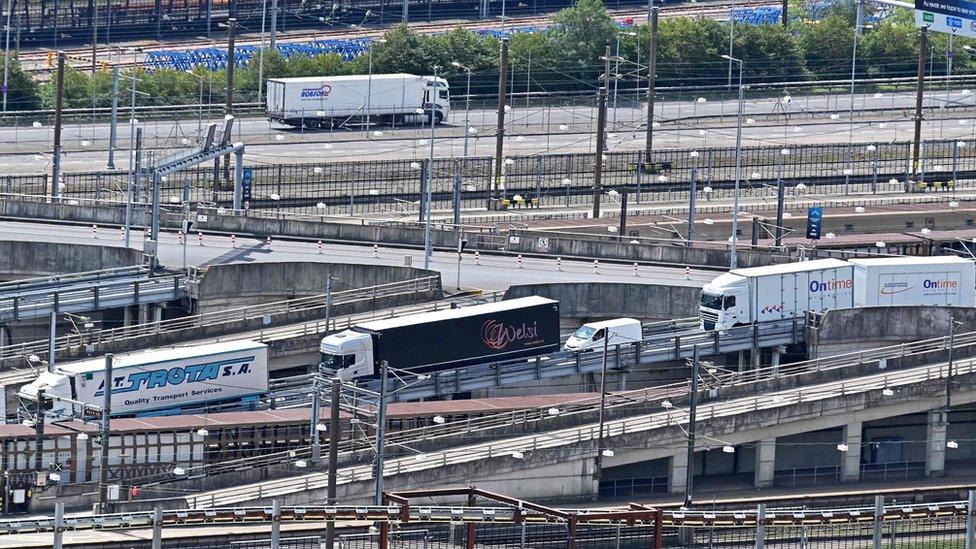Q&A: Could UK government build an M4 relief road?
- Published
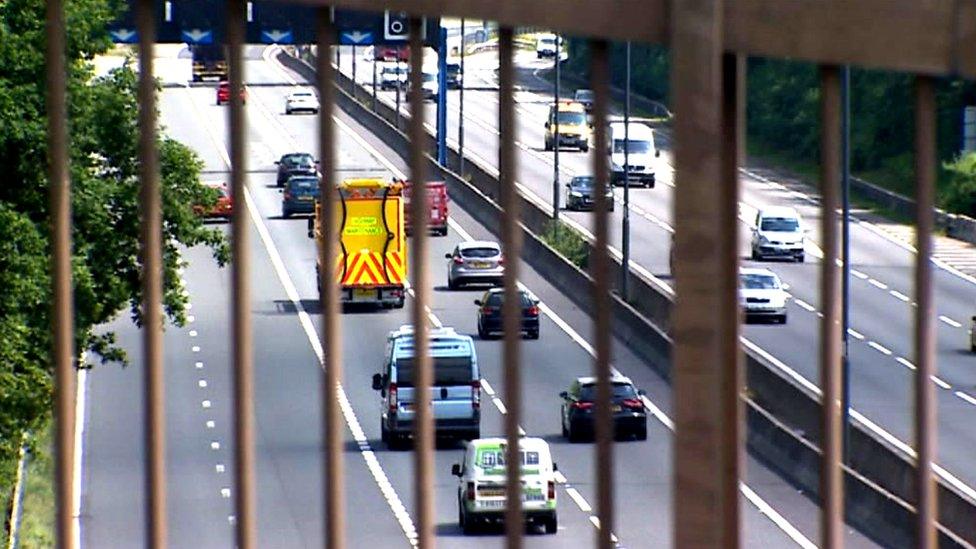
The cancelled M4 plans have been a bone of contention between UK and Welsh ministers
The UK government has published plans for a new law to give it more powers to spend in Wales.
Under the draft legislation, external powers currently resting at EU level would be transferred to UK ministers, giving them the ability to spend on economic development and infrastructure, for example.
This has sparked a political row, with Welsh ministers accusing their UK counterparts of "stealing powers" from them. UK ministers say they are simply using the legislation to replace current EU funding programmes.
The move also raises some questions:
Does this mean the UK government could build the M4 relief road?
UK ministers have long been in favour of building a new road to cut congestion on the motorway south of Newport, and were frustrated when First Minister Mark Drakeford cancelled the scheme last year because of its £1.6bn cost and its impact on the environment.
It is tempting to believe this bill would give the UK government the ability to send in the bulldozers and build the 14-mile relief road, but it's not that simple.
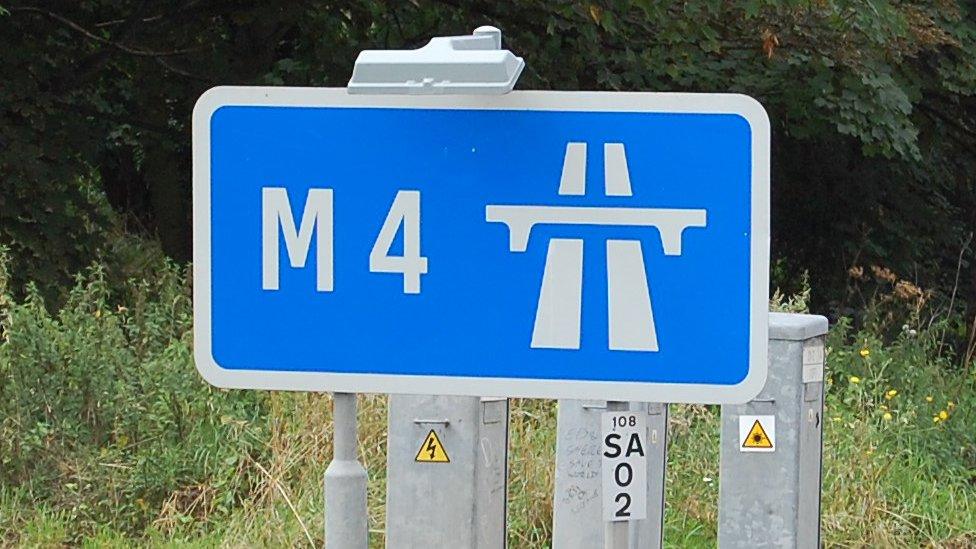
A planning inspector said the case for a relief road was "compelling"
Yes, UK ministers would be giving themselves infrastructure powers - but they would still also need the support of Welsh Government which controls big road projects to build the motorway.
Under the current administration in Cardiff that would be unlikely.
It would, however, give them the power to fund it - the same goes for other large infrastructure projects.
As most planning in Wales is devolved, it operates nationally through the Welsh Government and locally through councils.
How much does the UK government say its wants to spend in Wales?
This is still unclear - the UK government has not given a figure.
This bill does not set out exactly what UK government funds will replace EU ones - we're told that's coming in the autumn.
Previously, Wales had been eligible for £375m a year from EU funds.
The Conservatives manifesto at the 2019 general election committed them to matching EU funds for each of the four nations "at a minimum".
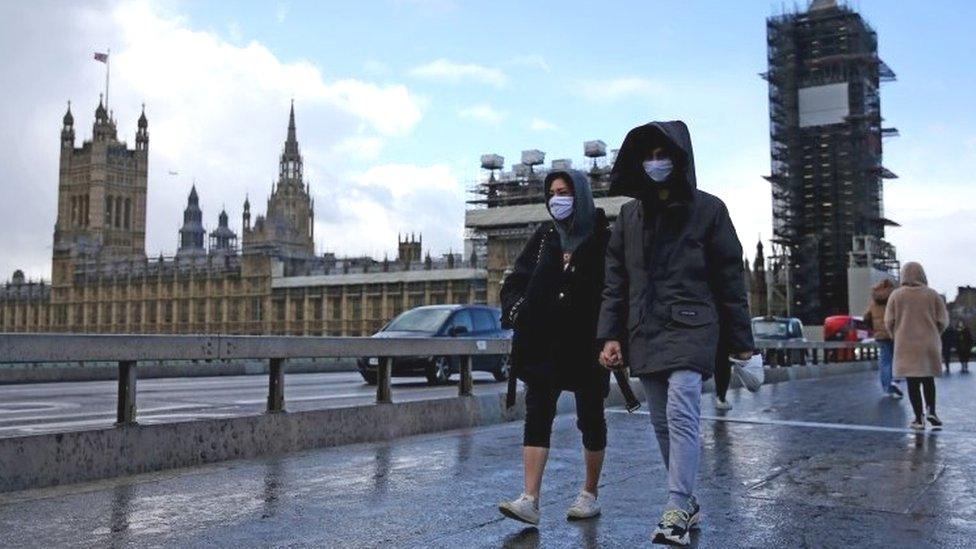
Ultimate political authority still resides with the UK Parliament at Westminster
Does this mean the Welsh Government can't spend on things such as culture, sport and economic development anymore?
No - it still will be able to.
But the reason Welsh ministers have accused the UK government of "stealing powers" is because the legislation would also give the UK government the power to spend on these areas, which it hasn't been able to since devolution in 1999.
The Welsh Government had also managed the EU cash the bill is replacing, in conjunction with the European Union.
UK ministers, however, claim they aren't taking any powers away but are just replacing EU programmes.
Does that mean the Welsh Government will get less money from the UK government?
A spokesperson for No.10 said UK government spending in these areas wouldn't come from Wales' block grant.
That's the money the Welsh Government gets from the UK Treasury to spend on devolved areas including health, education and economic development.
But the spokesperson said spending powers would be "discussed" at the UK government's next spending review.

Most of the money Welsh ministers have to spend comes from the UK Treasury
Can the Welsh Government stop this going ahead?
This proposed law has faced opposition from devolved governments.
The UK Parliament is sovereign - which means Westminster can pass laws for all parts of the UK, including if it involves things usually controlled from Cardiff or Edinburgh.
But it the UK Parliament will not normally make laws in this way without the consent of the Welsh and Scottish parliaments, and Northern Ireland Assembly.
Yet this convention, known as the Sewel convention, isn't legally binding - and the UK government has ignored it occasionally in the past.
What happens next?
A bill is a draft law. It doesn't become law until it's been voted through the House of Commons with a majority.
It will go through a number of debates - and possibly be amended - before it gets to its final stage to become law.
However, the current UK government has a large majority in the House of Commons - meaning unless some of their own MPs rebel it is easier for them to pass new laws.
- Published9 September 2020

- Published4 September 2020
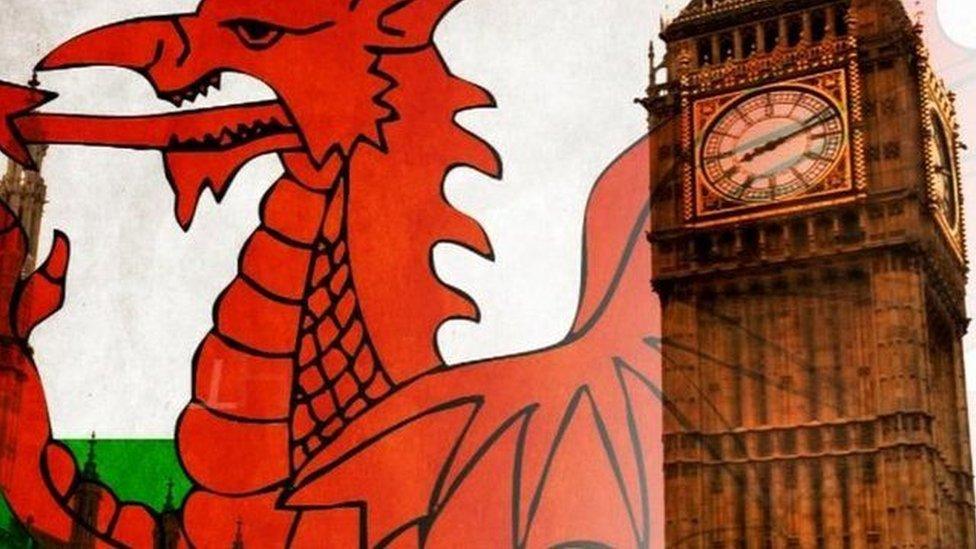
- Published20 August 2020
